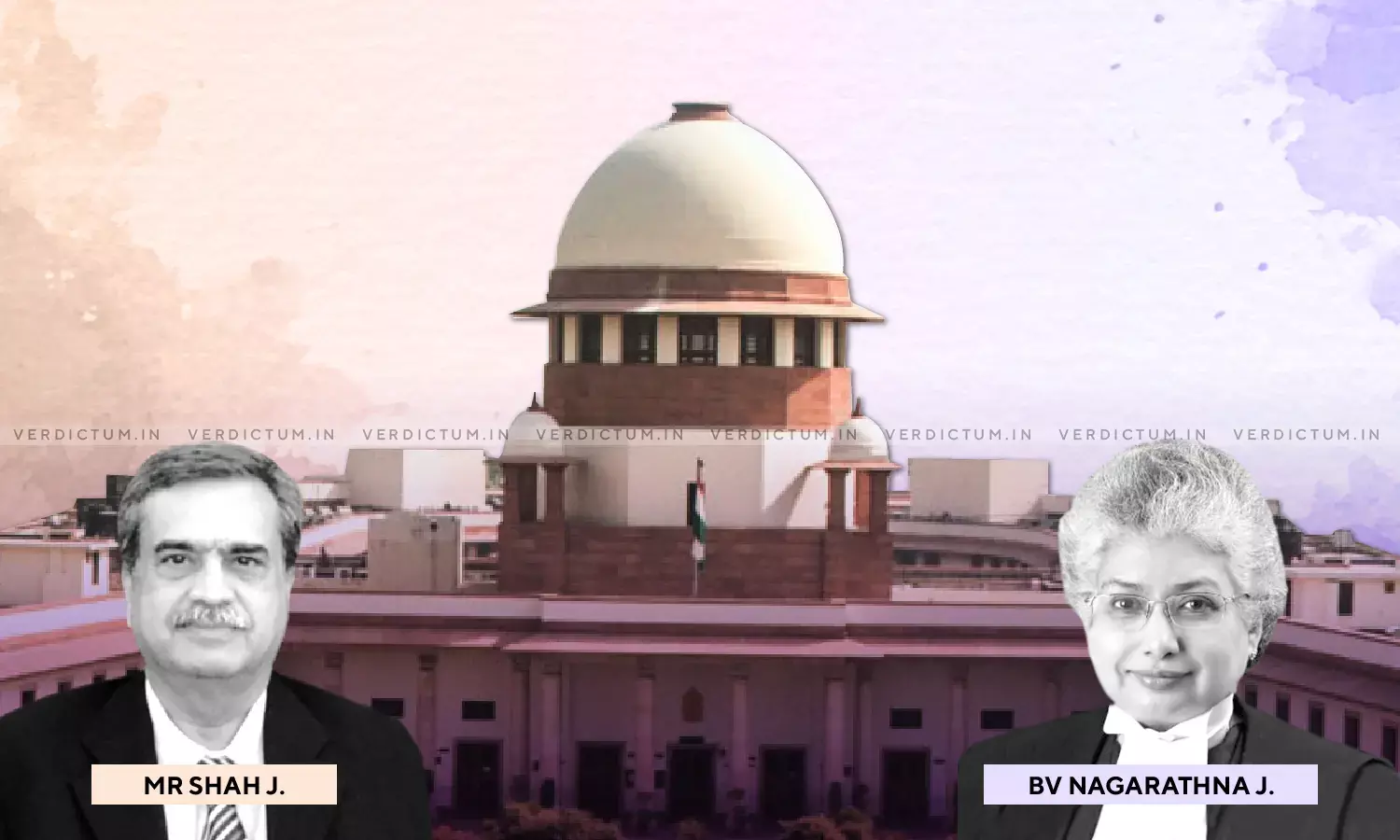SC Dismisses Wife's Plea Seeking Husband's Regularization Of Services After 12 Years Of His Death For Grant Of Family Pension

The Supreme Court has recently dismissed a wife's plea seeking her deceased husband's regularization of services after 12 years of his death for the grant of a family pension.
The Court has observed that as per the Regularization Policy the services of the work-charge employees should be regularized according to seniority.
"Under the Regularization Policy the services of the workcharge employees were required to be regularized as per the seniority and as and when the vacancy arises.", the Bench of Justice MR Shah and Justice BV Nagarathna held.
The case pertains to deceased husband of the respondent who was working as workcharge Jugali. He died in harness in 2005 as a workcharge employee. After a period of twelve years from the death of the deceased employee, the widow/wife of the deceased employee filed a writ petition before the Single Judge claiming that the services of her late husband ought to have been regularized and therefore, claimed that she was entitled to the family pension.
The Single Judge allowed the said petition and directed the appellant – State of Nagaland and Ors. to regularize his services from one day prior to the date of his demise so that his wife and her family members are entitled to pensionary benefits.
The High Court refused to interfere with the judgment and order passed by the Single Judge regularizing the services of the deceased/husband of the respondent one day prior to his demise.
Aggrieved the State approached the Supreme Court.
Advocate K. Enatoli Sema, appearing on behalf of the State, submitted that the impugned judgment and order passed by the High Court directing the appellant – State to regularize the services of the deceased employee one day prior to his demise was unsustainable.
It was submitted that the deceased employee had never claimed regularization during his lifetime and that the respondent widow had claimed regularization after a period of twelve years from the death her husband.
It was further submitted that even otherwise the deceased employee was not entitled to regularization even on the date of his death as he was much below in the seniority list and his turn had not come for regularization.
After considering the submissions of the state and going through the judgment of the Single Judge, the Court opined that the High Court committed a grave error in directing the appellant to regularize the services of the deceased employee one day prior to his death.
The Court observed that the deceased employee had never claimed regularization in his lifetime. The Court also observed that the wife of the deceased employee claimed the regularization after a period of twelve years from the death of the deceased employee.
The Court further held, "At the time of the death of the deceased employee he was not entitled to regularization as he was much below in the list of the worked charge employees whose services were to be regularized."
The Court further noted that the services of the other workcharge employees who were senior to the deceased employees were regularized in the year 2009 i.e. after the death of the deceased employee.
"Despite the above, the High Court has directed the State to regularize the services of the deceased employee one day prior to his death, which otherwise his services were not required to be regularized as his turn had not come and he was much below in the seniority list.", the Court held.
Accordingly, the Court quashed and set aside the impugned judgment and the order passed by the Division Bench of the High Court as well as the Single Judge.
Click here to read/download the Judgment

